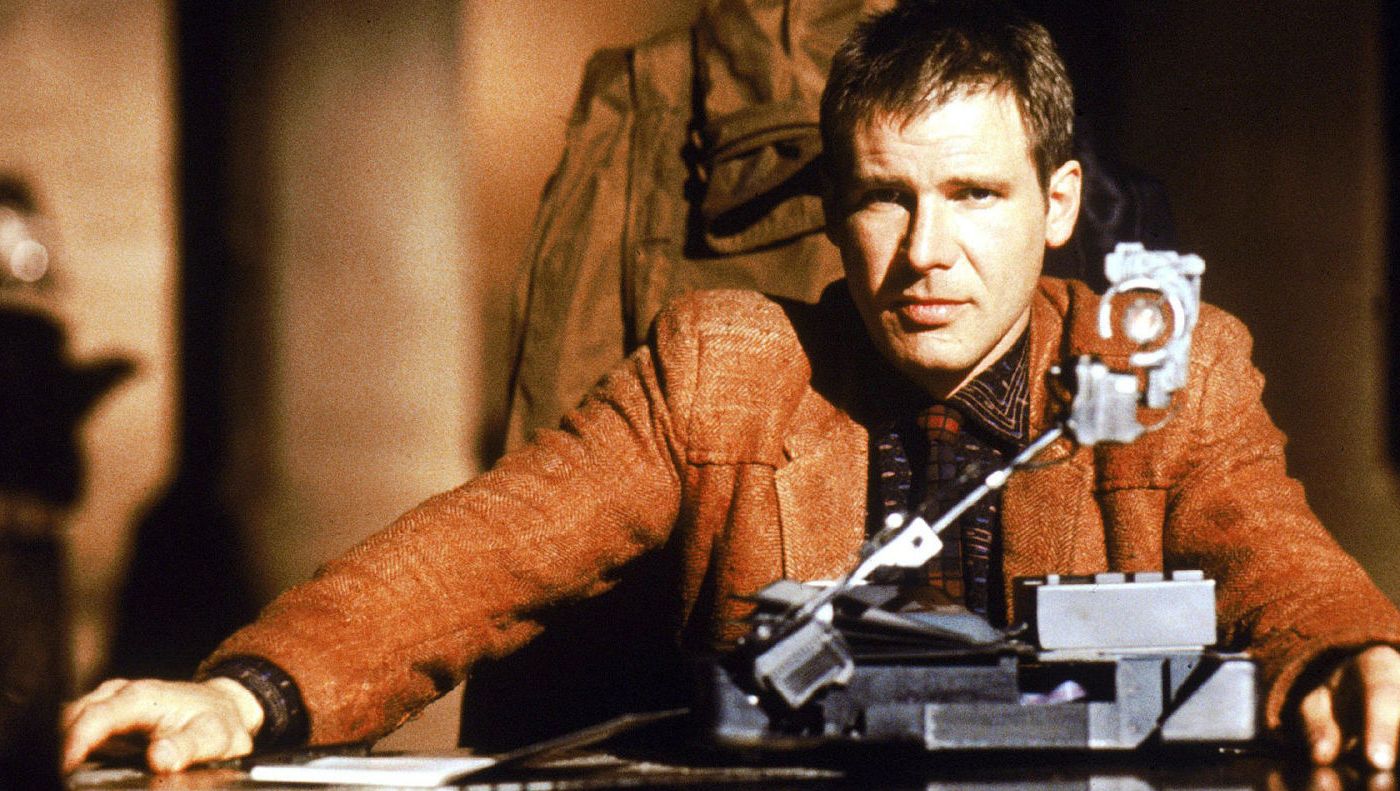He could hardly wait to pull the notes out of his pocket. That’s at least what it looked like when Harrison Ford showed up in his tuxedo at 2021’s singular Oscars ceremony. Coming on stage to present the award for Best Editing, the once and future Indiana Jones star took the moment to share with audiences a few of his favorite notes from a little movie he did back in the day—though it’s doubtful any Blade Runner fan couldn’t immediately guess the name of the picture.
“I want to share some notes, some editorial suggestions that were prepared after the screening of a movie I was in,” Ford said with his trademark latter day gruffness. “‘Opening too choppy. Why is this voiceover track so terrible? He sounds drugged. Were they all on drugs? Deckard at the piano is interminable. Flashback dialogue confusing. Is he listening to a tape? Why do we need the third cut to the eggs? The synagogue music is awful on the streets. We’ve got to use Vangelis. Up to Zora’s death, the movie is deadly dull. This movie gets worse every screening!’”
Only after letting the audience groan at the mercilessness of the feedback did Ford tell the crowd that the movie in question is director Ridley Scott’s moody Blade Runner.
“These notes can help us understand why the editing process can often get a little complicated,” Ford continued. “The possibilities may seem endless, but the editor will work tirelessly, often in isolation, to make thousands of choices, placing the right piece of the right length in the right order to arrive at the best version of what the movie wants to be. It’s an extremely difficult process, not for the impatient, not for the faint of heart.”
The short spiel, which you can watch in its entirety below, is also Ford’s way of again airing out the complicated and often bitter post-production process Blade Runner endured. Largely considered a cult classic today—to the point where it inspired a 30-year later legacy sequel with a massive budget—the film opened to mixed reviews and poor box office. Many would argue this was in large part due to how the film was tinkered with in post, beginning with Scott being fired from the picture after principal photography.
While Ford and Scott’s working relationship could at best be described as strained if not outright cantankerous, both could agree on having a dissatisfaction with what became Blade Runner’s theatrical cut. The rain-soaked sci-fi neo noir is an exercise in style and tone, taking on an almost meditative quality as it considers a nihilistic future where machines are more human than what’s left of our species. Yet the theatrical version of the film ends with a happily ever after of Ford’s Deckard driving off into the mountains for a weekend getaway (with footage actually lifted from The Shining’s opening sequence) as well as one more bit of listless voiceover narration that Ford delivers in monotone.
Indeed, Ford alluded to the theatrical cut’s largely derided voiceover narration when he read, “Why is the voiceover track so terrible? He sounds drugged.” In fact, the narration (which was the first thing Scott took ou when he corrected the film in his Director’s Cut many years later) was something Ford likewise detested. While it’s debated who actually wrote the final version of it—Ford infamously fought having to read it.
But after Warner Bros. screened Blade Runner, they insisted voiceover narration was needed to make heads or tails of the film. Ford reportedly laughed at the script he was handed for what became the final narration in the theatrical cut (alternate deleted scenes includes different, slightly better read narration).
In the 2007 audio commentary he recorded for Blade Runner: The Final Cut, Ford said, “I was obliged by my contract to record that narration, which I found awkward and uninspired.”
Hence many have speculated Ford intentionally underplayed the dialogue as flatly as possible in an attempt to essentially sabotage the studio’s decision, preventing them from putting it in the movie—but they did so anyway. Ford has denied these rumors, however, and criticized the writing itself for his restrained delivery.
Still, one can’t help but smile at the thought of Ford walking around with a copy of those studio notes folded up in his pocket for almost 40 years—knowing that on one random Oscar night he would pull it out and have a good laugh at the studio’s expense. After these awards, I’ll now like to think he did.
